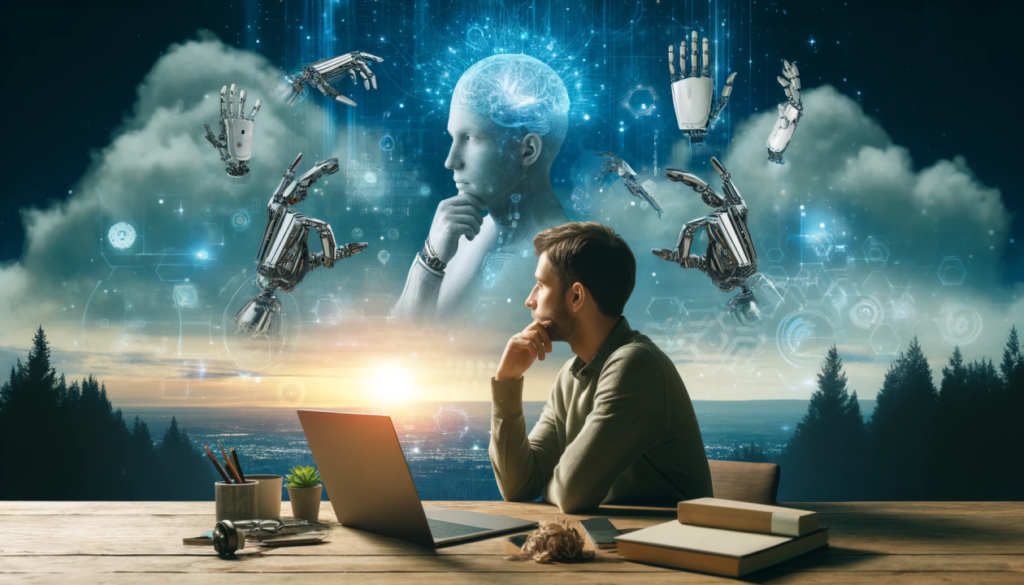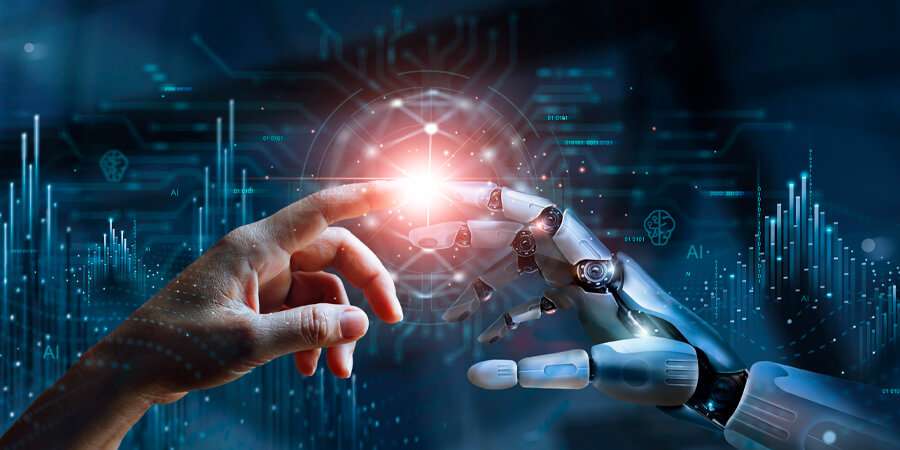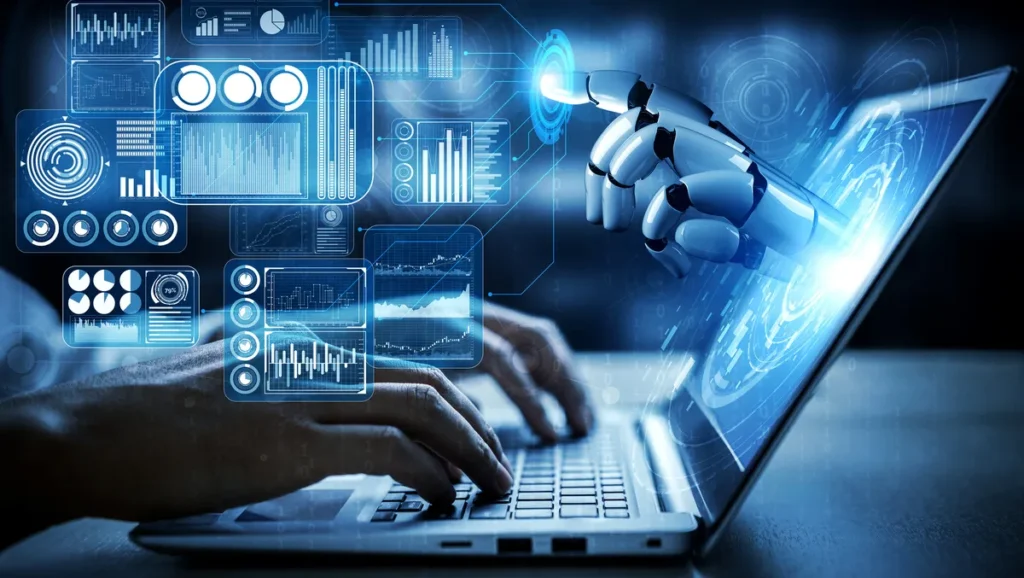Table of Contents
Introduction:
In the age of Artificial Intelligence (AI), where machines learn, make decisions, and interact with humans in unprecedented ways, one might wonder: what does it mean to be human? As AI increasingly integrates into our daily lives, the distinction between human intelligence and artificial intelligence becomes a significant topic. This blog delves into the meaning of being human in this transformative era, examining the role of humans in AI development and the impact of AI on human life.

What is the Meaning of Being Human in the Age of Artificial Intelligence?
Being human in the age of artificial intelligence is about embracing our unique qualities, such as empathy, creativity, emotional intelligence, and ethical judgment, which set us apart from machines. While AI can process data at lightning speed, solve complex problems, and learn from vast amounts of information, it lacks the human ability to understand emotions, form deep connections, and make moral decisions.
In this age, being human means leveraging AI to enhance our lives while maintaining our intrinsic values and characteristics. It’s about using AI to solve problems, make informed decisions, and augment creativity without losing the essence of what makes us human.
What is Human Intelligence by Age?
Human intelligence evolves with age and is characterized by our capacity to learn, reason, and adapt to new situations. As we age, our cognitive abilities change. For instance:
- Childhood: This stage is marked by rapid learning and creativity, where the brain is highly adaptable.
- Adolescence: Problem-solving, abstract thinking, and logical reasoning develop as individuals start forming complex thoughts.
- Adulthood: Peak cognitive abilities are often seen in young adulthood, where decision-making and emotional regulation improve.
- Old Age: With aging, while certain cognitive functions may decline, wisdom, experience, and emotional intelligence often increase.
AI systems, though powerful in processing and problem-solving, do not follow the developmental trajectory of human intelligence. This difference highlights the complexity and depth of human cognition across a lifetime, which AI cannot replicate.

What is the Role of Humans in the Age of AI?
Humans play an essential role in the development, regulation, and ethical deployment of AI. While AI can automate tasks, solve complex problems, and predict outcomes, humans are crucial in providing oversight, creativity, and ethical considerations. Some key roles include:
- Ethical Oversight: AI can make decisions based on data but lacks an inherent moral compass. Humans ensure that AI applications are used ethically and do not infringe on rights or privacy.
- Creativity and Innovation: AI can assist in generating ideas, but humans drive true innovation. Human creativity and intuition remain unparalleled, with AI serving as a tool to expand these capabilities.
- Emotional Intelligence: Humans bring empathy and emotional understanding to roles that AI cannot fulfill, particularly in areas such as healthcare, customer service, and leadership.
- Problem Solving: While AI can offer solutions based on algorithms, humans provide context, experience, and adaptability to address problems in dynamic and unpredictable environments.
Why Are Humans Important in AI?
Humans are crucial to AI for several reasons:
- Training AI Models: Humans provide the data and input AI systems need to learn. AI models rely on human-generated information to identify patterns and make decisions.
- Ethical and Moral Judgments: AI cannot make moral decisions. Human intervention is necessary to ensure that AI systems are fair, transparent, and ethical.
- Collaboration: AI is a tool that enhances human capabilities, but it is not a replacement for human workers. In many cases, AI and humans work best when they collaborate, combining machine efficiency with human insight and creativity.
- Human Values and Emotions: AI cannot understand emotions, empathy, and social dynamics. Humans provide the emotional intelligence necessary for mental health, education, and personal relationships.

How AI is Changing Human Life?
AI is rapidly transforming various aspects of human life, from how we work to how we communicate, learn, and even care for our health. Here are some ways AI is impacting our day-to-day lives:
- Workplace Automation: AI is automating repetitive tasks, freeing up humans to focus on more creative, strategic work. This shift is reshaping industries such as manufacturing, finance, and customer service.
- Healthcare: AI is revolutionizing healthcare by providing faster diagnoses, personalized treatment plans, and even predictive analysis to identify potential health risks.
- Education: AI is personalizing learning experiences, offering tailored education plans based on individual student needs. It also helps in automating administrative tasks, allowing educators to focus more on teaching.
- Communication: AI-powered chatbots and virtual assistants are transforming customer service and support, making interactions more efficient and available 24/7.
- Daily Convenience: From smart home devices to AI-driven recommendations on streaming services and e-commerce platforms, AI is seamlessly integrated into everyday activities, making life more convenient and efficient.
Conclusion:
As we navigate the age of artificial intelligence, being human means understanding and embracing what sets us apart: our creativity, empathy, moral compass, and emotional intelligence. While AI continues to reshape industries and daily life, humans will always remain essential to guide, control, and complement these advancements. The future is not about AI replacing humans but creating a harmonious balance where humans and AI work together to achieve more than ever.
What does it mean to be human in the age of Artificial Intelligence?
Being human in the age of Artificial Intelligence means embracing qualities like empathy, creativity, and ethical decision-making, which AI cannot replicate. It involves working alongside AI to enhance our lives while maintaining our unique human traits.
Why are humans still important in the age of Artificial Intelligence?
Humans are crucial for decision-making, emotional intelligence, and innovation. AI lacks emotional understanding and moral reasoning, making human involvement necessary in fields like healthcare, education, and customer service.